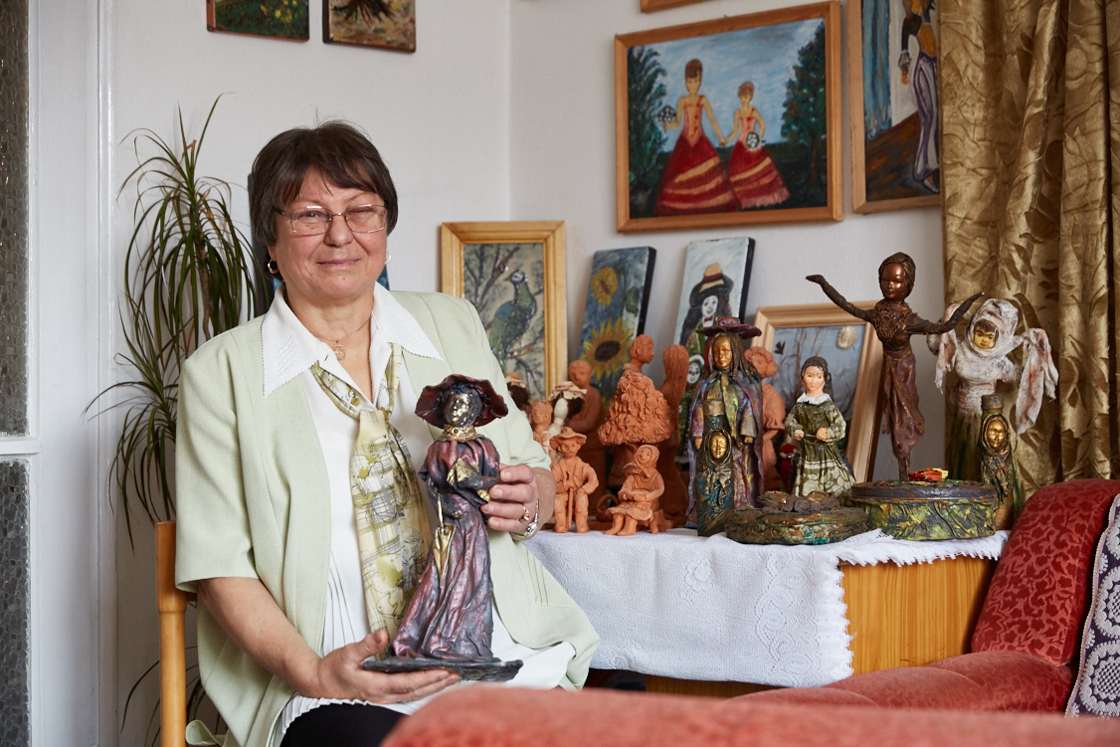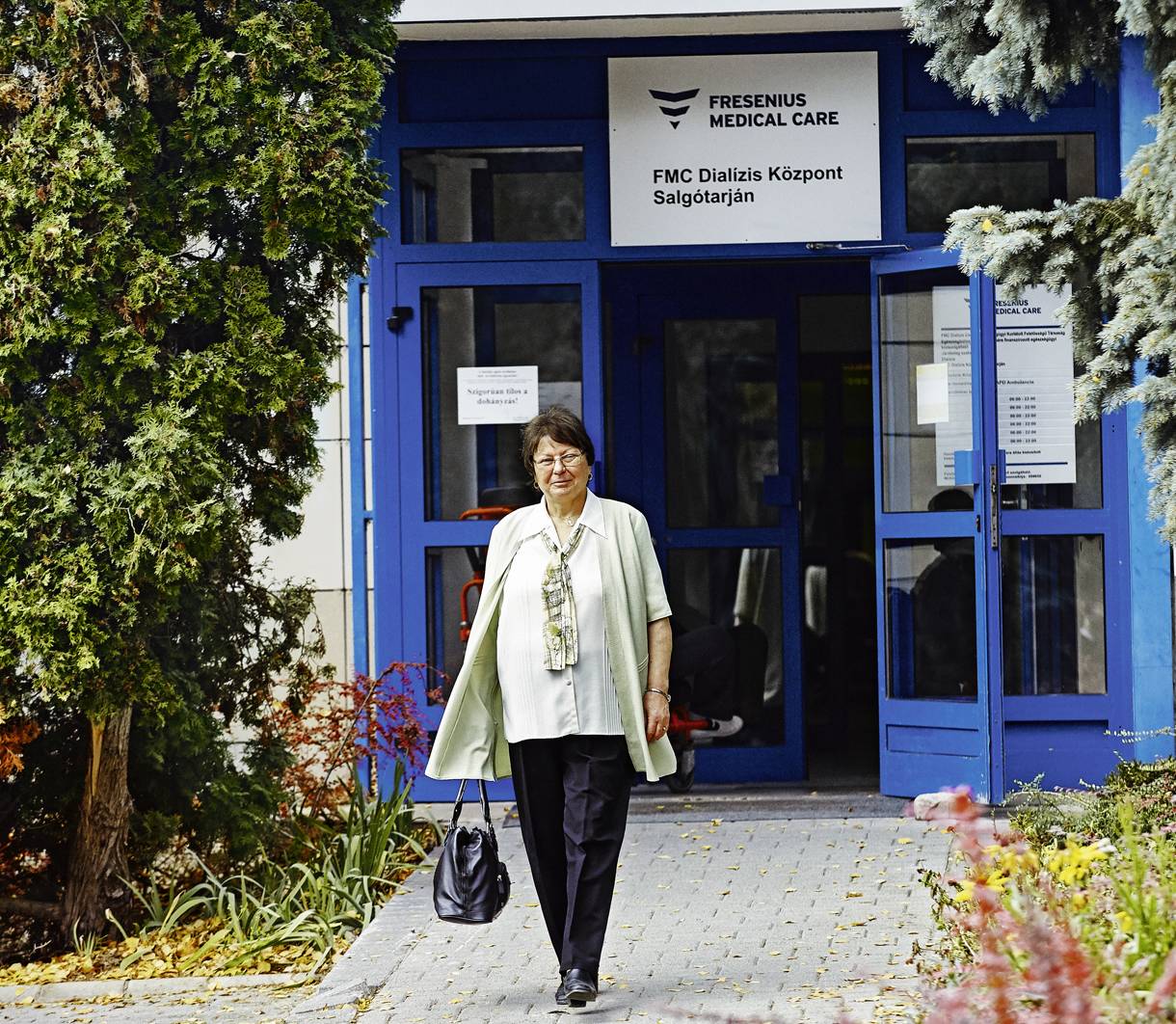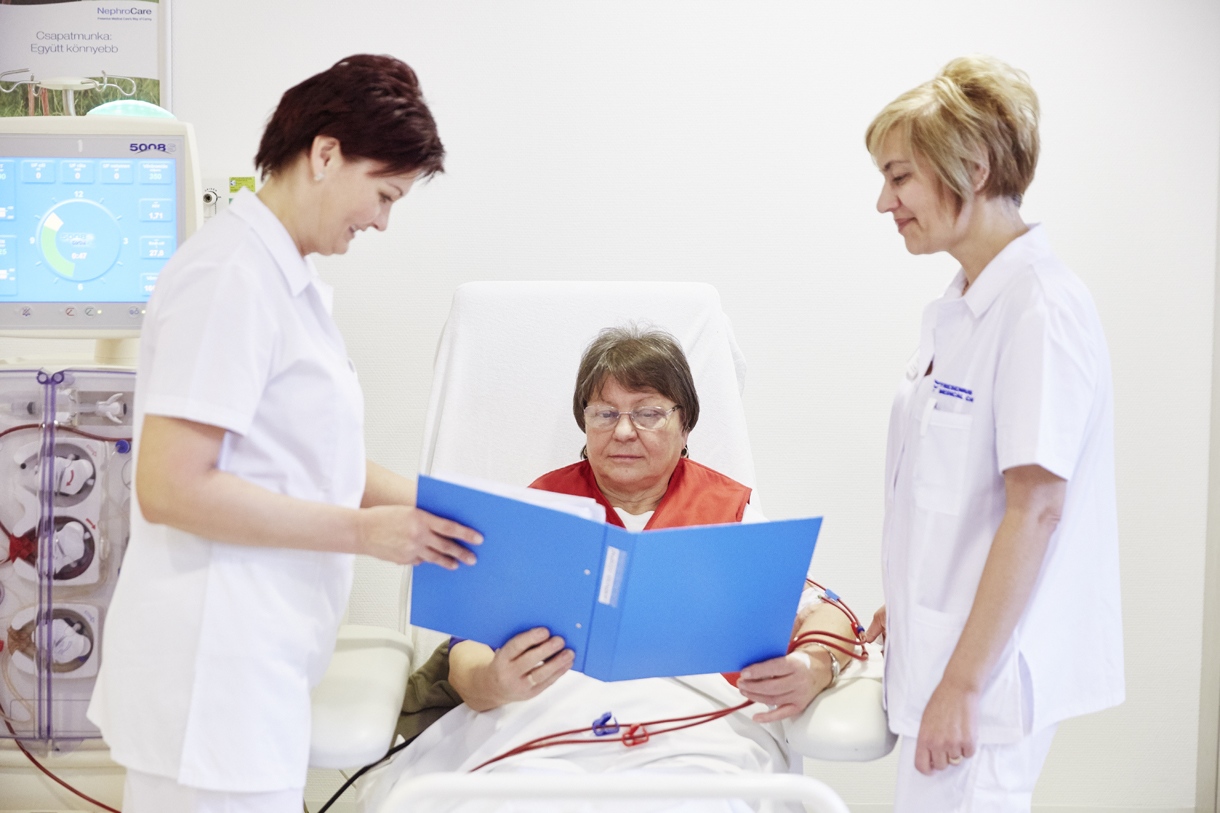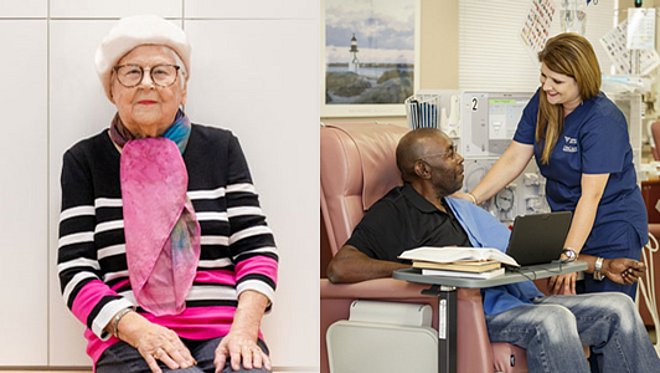"There’s not much I can’t do."

Prevention programs can slow down the progression of Kidney Disease and ease the transition to dialysis for patients
Dolls, figurines, portraits – Gizella Laurencsik’s living room is teeming with small artworks. The 65-year-old made them all herself. She discovered her passion for handicraft relatively late in life. "I was given a straw doll and thought, well, I could do that too," Gizella Laurencsik recalls. She started making the small straw figurines. "That was in winter 2001."
Gizella Laurencsik is very good at remembering dates and years. There was November 1970, a time of upheaval, when she and her husband moved into their small house in Karancsalja, a village in northern Hungary around an hour’s drive from Budapest. Another milestone was in 1996, when kidney disease forced her to give up work. And, of course, the dates when her two sons and four grandchildren were born.
The most recent date etched in Gizella Laurencsik’s memory is May 26, 2014, the day she first encountered a dialysis machine.

I went to a part of the hospital I’d never been to before. A nurse came up to me and asked me what I was looking for. Anxiously, I told her I was a new patient. She took me to a room and showed me where to sit. Then another nurse came to explain to me what was going to happen. She was very nice, but it was strange to see my blood flowing through these lines. I could feel the heat of the blood.

Turning point in life
Making the decision to undergo dialysis is a life-changing moment. Like any other patient, Gizella Laurencsik was deeply apprehensive. But she was determined to be strong, and pulled herself together: "If others have managed to get through this treatment, so can I." She had known for some time that the day was coming when her kidneys would no longer function adequately and dialysis would be inevitable. Fortunately, primary care physicians and specialists were on hand to help her and prepare her from an early stage.
"I had been going to kidney specialists for treatment for 17 years. Then I underwent a vascular access procedure to prepare me for dialysis. But I wanted to put off the treatment for as long as possible. I felt fine, and had no intoxication symptoms, until in May 2014 my blood values became increasingly critical."

A gentle start
Dr. Stefano Stuard believes that the transition to dialysis described by Gizella Laurencsik is ideal. The nephrologist is responsible for coordinating medical operations at Fresenius Medical Care’s dialysis clinics in Europe, the Middle East and Africa. He also oversees the programs for treatment of pre-dialysis patients. "Our aim is to ensure that patients are well prepared for a kidney transplant. This means that we need to keep them as physically stable as possible. Patients who are not sufficiently adjusted to dialysis beforehand often suffer cardiovascular complications such as congestive heart failure." These complications are obstacles to a subsequent kidney transplant. To help physicians and patients focus more on this pre-dialysis period, Fresenius Medical Care also supports national programs in various countries, such as the Hungarian National Kidney Program, which has been training physicians and educating people in risk groups on the topic since 2011. "It’s a wonderful program," explains Stefano Stuard. Fresenius Medical Care supports similar activities in Poland and the Czech Republic.

There’s not much I can’t do. I do the housework, water the flowers, tend the garden. It’s just that everything goes at a slower pace, everything takes longer.

Living with the machine
Gizella Laurencsik now has to undergo dialysis at the nearby clinic three times a week. She goes for treatment first thing in the morning at 6 a. m. so she can spend her afternoons walking with her husband in a nearby park and working on her handicraft. For Gizella Laurencsik, it is important to keep up her usual routine. "My life hasn’t actually changed at all," she maintains. Her children and grandchildren don’t perceive her as being ill because she keeps so busy in the house, in the garden and in the art group that she joined ten years ago. Gizella Laurencsik obviously hopes it stays that way. "I’ve never really liked long trips," she admits, which is partly why she finds it easy to stick to her dialysis regime. "At the moment, I’m coping well," she says, looking around at all her small artworks.

